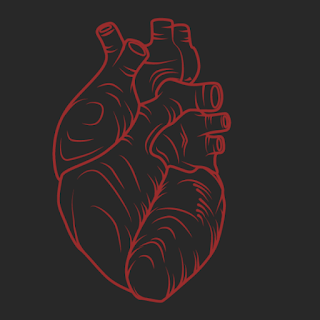Summary:
One study examined the cardiac MRIs of 100 people who had recovered from Covid-19 and compared them to heart images from 100 people who were similar but not infected with the virus. Their average age was 49 and two-thirds of the patients had recovered at home. More than two months later, infected patients were more likely to have troubling cardiac signs than people in the control group: 78 patients showed structural changes to their hearts, 76 had evidence of a biomarker signaling cardiac injury typically found after a heart attack, and 60 had signs of inflammation. These were relatively young, healthy patients who fell ill in the spring, Valentina Puntmann, who led the MRI study, pointed out in an interview. Many of them had just returned from ski vacations. None of them thought they
Topics:
Mike Norman considers the following as important:
This could be interesting, too:
One study examined the cardiac MRIs of 100 people who had recovered from Covid-19 and compared them to heart images from 100 people who were similar but not infected with the virus. Their average age was 49 and two-thirds of the patients had recovered at home. More than two months later, infected patients were more likely to have troubling cardiac signs than people in the control group: 78 patients showed structural changes to their hearts, 76 had evidence of a biomarker signaling cardiac injury typically found after a heart attack, and 60 had signs of inflammation. These were relatively young, healthy patients who fell ill in the spring, Valentina Puntmann, who led the MRI study, pointed out in an interview. Many of them had just returned from ski vacations. None of them thought they
Topics:
Mike Norman considers the following as important:
This could be interesting, too:
Robert Vienneau writes Austrian Capital Theory And Triple-Switching In The Corn-Tractor Model
Mike Norman writes The Accursed Tariffs — NeilW
Mike Norman writes IRS has agreed to share migrants’ tax information with ICE
Mike Norman writes Trump’s “Liberation Day”: Another PR Gag, or Global Reorientation Turning Point? — Simplicius
One study examined the cardiac MRIs of 100 people who had recovered from Covid-19 and compared them to heart images from 100 people who were similar but not infected with the virus. Their average age was 49 and two-thirds of the patients had recovered at home. More than two months later, infected patients were more likely to have troubling cardiac signs than people in the control group: 78 patients showed structural changes to their hearts, 76 had evidence of a biomarker signaling cardiac injury typically found after a heart attack, and 60 had signs of inflammation.
These were relatively young, healthy patients who fell ill in the spring, Valentina Puntmann, who led the MRI study, pointed out in an interview. Many of them had just returned from ski vacations. None of them thought they had anything wrong with their hearts.
Statnews
Covid-19 infections leave an impact on the heart, raising concerns about lasting damage

